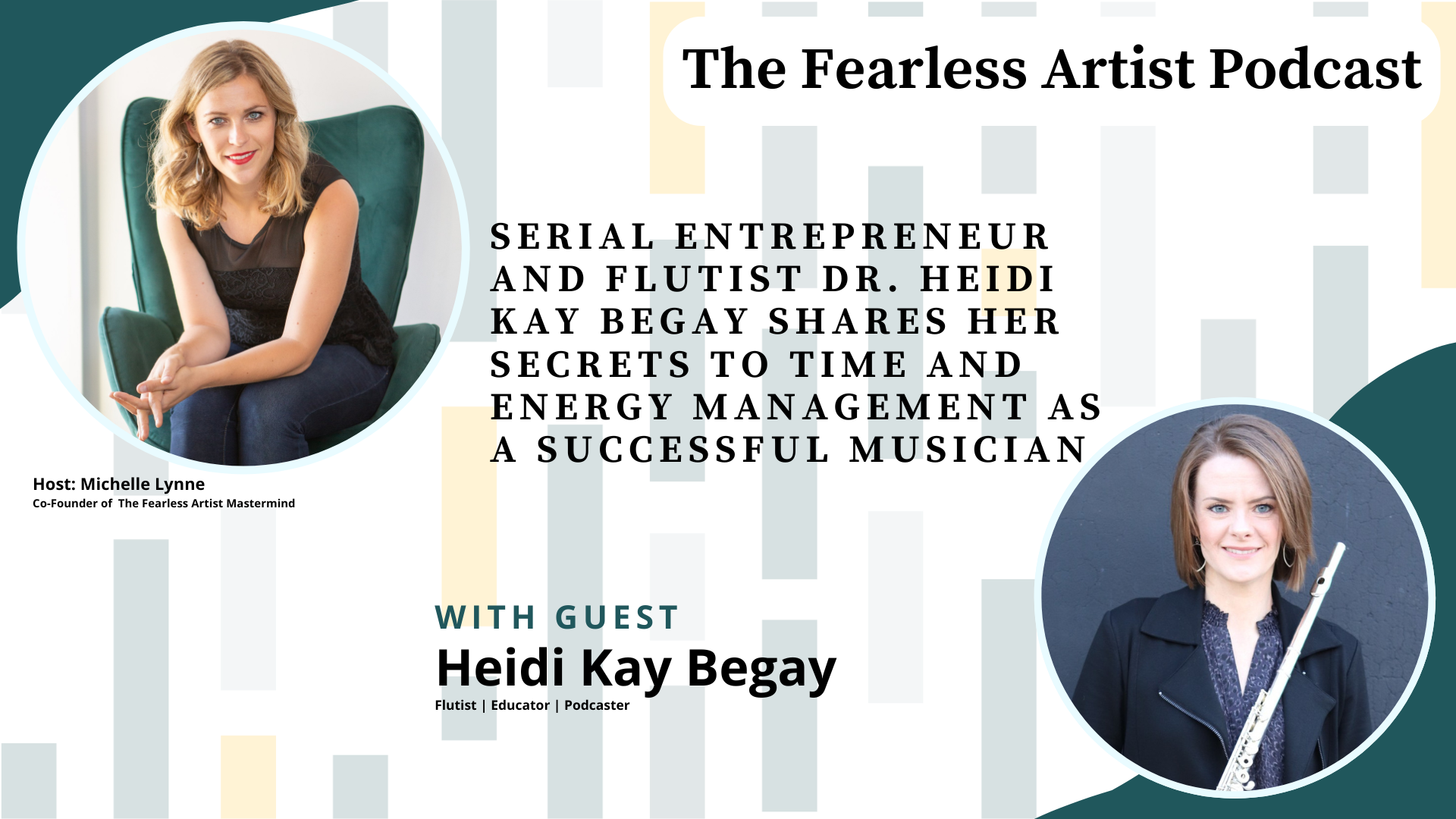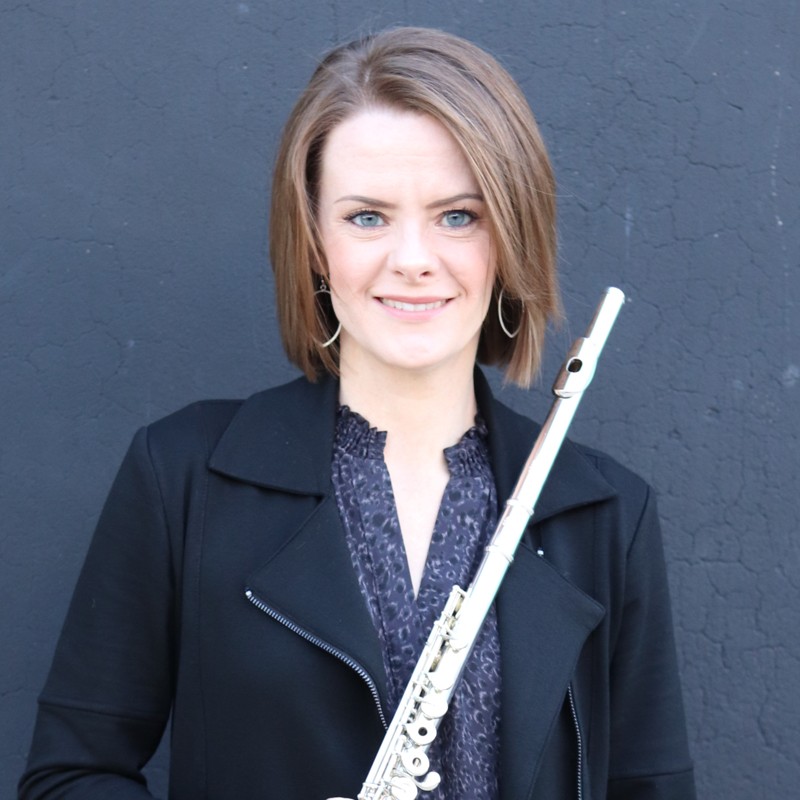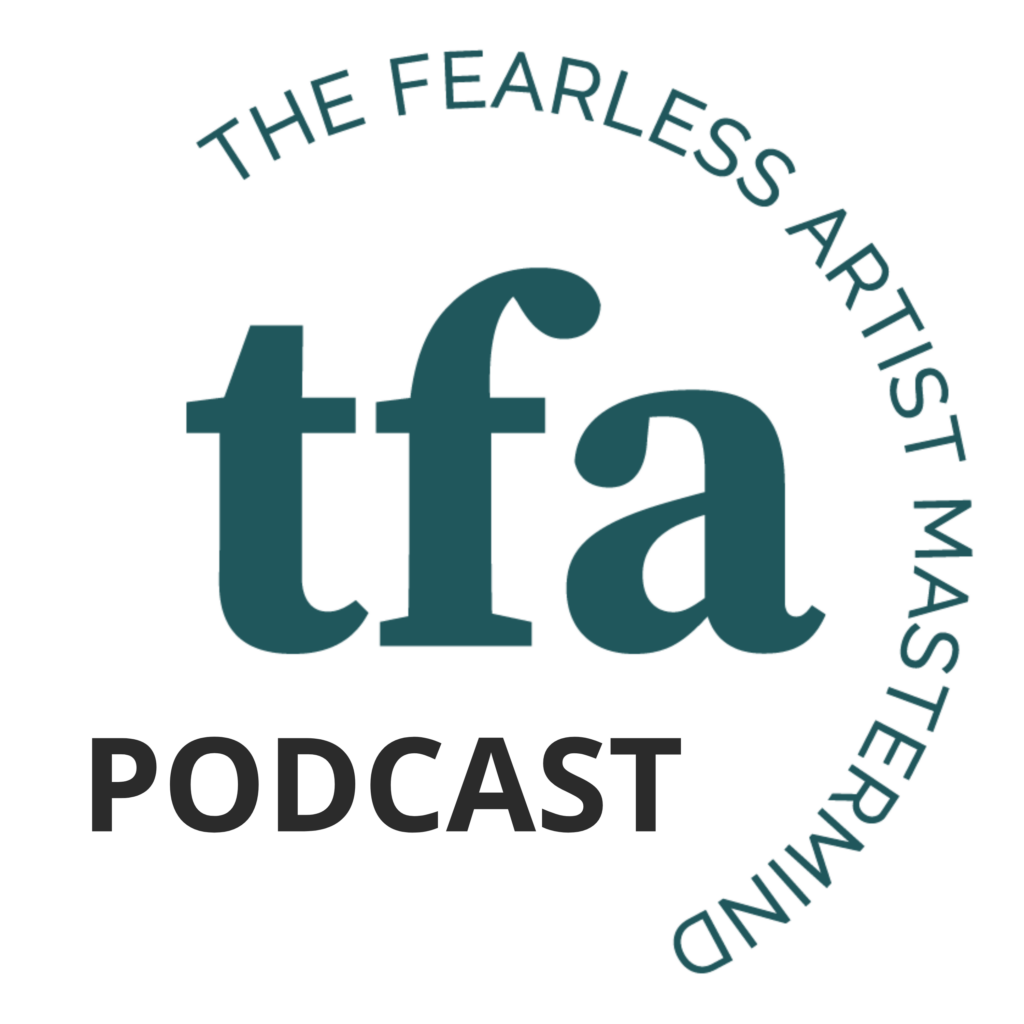Serial entrepreneur and flutist Dr. Heidi Kay Begay shares her secrets to time and energy management as a successful musician

Guest:
Dr. Heidi Kay Begay
Flutist | Educator | Podcaster
Dr. Heidi Kay Begay is a passionate serial entrepreneur who guides the modern-day musician to find and amplify their unique voice on and off the stage.
Heidi owns and co-owns four thriving companies, which include The Pivoting Musician, Red House Productions, Flute 360, J&K Productions. Through her entrepreneurial portfolio, she wears many hats, including being an educator, flutist, coach, podcaster, and podcasting consultant.
The Pivoting Musician helps the modern-day musician to find and own their unique creative path. Since Heidi’s own pivot in 2020, she has been helping musicians have a successful pivot of their own. Heidi co-owns and co-teaches alongside her friend and colleague, Dr. Garrett Hope. In addition to annual classes, they also co-host a podcast together. We are confident to help musicians learn how to pivot, collaborate, create, market, and enroll their dream clientele, so they (the musicpreneur) can create financial and creative opportunities for themselves!
In addition, since Heidi has seen tremendous career and business success as a podcasting musician, she encourages the modern-day musician to claim this piece of digital real estate. Heidi believes that podcasting is an untapped market for musicians. Therefore, she helps businesses and creative artists to tap into this podcasting platform, so they can connect with their clientele on a deeper, more intimate plane. Red House Productions is your podcasting home where we meet you where you are throughout your podcasting journey; whether you want to launch, grow, or monetize your podcast – we are here for you!
The proof in the pudding for such a trajectory is Heidi’s podcast, which is called Flute 360. Since 2018, the show has received over 200,000 downloads and as served flutists worldwide through its 280+ episodes! Throughout the podcast, Heidi offers holistic content to serve the modern-day flutist to better their wellbeing as a human, artist, and musicpreneur. She serves her flute clientele through lessons, festivals, membership offerings, remote classes, and coaching. Flute 360 has partnered with over thirty different companies through corporate sponsorships, which has been a tremendous blessing for the show.
To continue serving musicians on a deeper level, she co-owns J&K Productions with her husband, Eric Jay Begay. The goal of this company is to offer exceptional audio and video editing and production work for musicians and their creative projects. Services include audio and video editing, live sound, mastering music albums, and more!
Heidi is thrilled to work with musicians to reach new heights, so they can feel empowered and have a life they love both on and off the stage. To schedule a call with Dr. Heidi Kay Begay, please visit her Calendly page at https://calendly.com/heidikaybegay.
—
Website –
Instagram –
https://www.instagram.com/heidikaybegay/
—

Subscribe to The Fearless Artist Podcast
Intro/Outro music by Michelle Lynne • Episode produced by phMediaStudio, LLC
